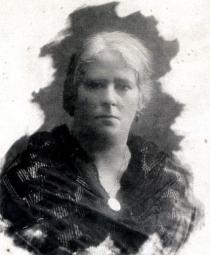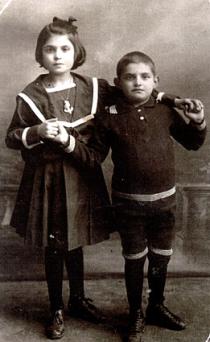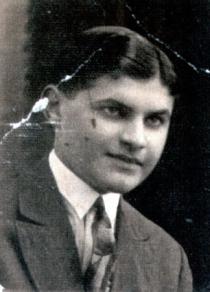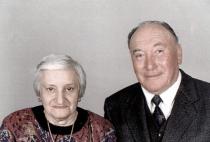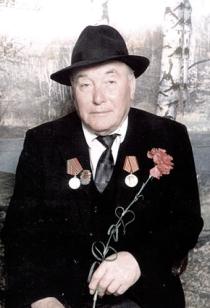This is me, Vladimir Khalfin after finishing 8 years of evening school in Chernovtsy. The photo was taken in 1948.
In June 1941 I finished the 5-year Jewish school and took my documents to the 6th form in Ukrainian school. I was looking forward to my summer vacations. On the morning of 22 June 1941 we woke up from the roar of explosions. In some time our neighbor came to tell us that it was the bombing of Mogilyov-Podolskiy in 30 km from our town. In less than one month Germans came to the village. The central area of Luchinets where Jews resided was fenced with barbed wire. We were told that the area fenced with barbed wire was a Jewish ghetto and that we were not allowed to leave it. This happened in the first half of July 1941. We stayed in our house in one room and a family from Bessarabia occupied another room. On 28 March 1944 Soviet troops came to Luchinets. It's hard to say how many inmates of the ghetto survived, but I know there weren't many survivors. Fortunately, my mother, my brother and sister and I survived.
We had nothing to live on and Ukrainian neighbors supported us at the beginning giving us food and clothes. My mother didn't want to stay in Luchinets. She decided it would be easier to find a job in a town. In summer 1944 we left for Mogilyov-Podolskiy. We sold our house in Luchinets just for peanuts. I had to support my family and became an apprentice for a shoemaker in Mogilyov-Podolskiy. My sister went to the 8th form and finished there the secondary lower school. My brother went to the 1st form of a Ukrainian school. Mother went to work in a shop that made working clothing: robes and gloves. We rented a room from a local woman.
Mother heard that there were many vacant apartments in Chernovtsy and we moved to the town in 1946. However, so many other Jews came to town before us that we couldn't find a vacant apartment and we rented a room in a one-storied building in an old Jewish neighborhood. This was the first time we were in a big town and we liked it. We liked the big old buildings with stucco moldings on the facades, big stores and wide streets. Almost 70% of the population was Jewish and one could hear people speaking Yiddish in the streets. There was a synagogue, a Jewish school and a Jewish theater in the town. We met new Jewish friends at work and at school. We celebrated Jewish holidays at home. Before 1948 the synagogue sold matzah. Later we had to get it secretly. We were very poor and mother couldn't afford to buy all necessary food for holidays, but she tried to make something special anyway.
I became an apprentice of a worker at the shoe factory and then worked sometime at the mechanic plant. 1947-48 were hard years. Food sold at the market was far too expensive. After workinged I studied at the lower secondary evening school to get secondary education. After finishing this school I studied to make shoes. I couldn't afford to continue education. I worked at shoemaker shop for over 50 years. There were 10 other Jewish employees. I never faced any anti-Semitism at work. I was a skilled employee and my clients treated me with respect.
I wasn't a Komsomol member or a communist. It wasn't mandatory in the evening school where I studied to join the Komsomol and I didn't feel like becoming a member of either Komsomol or the Communist Party.

